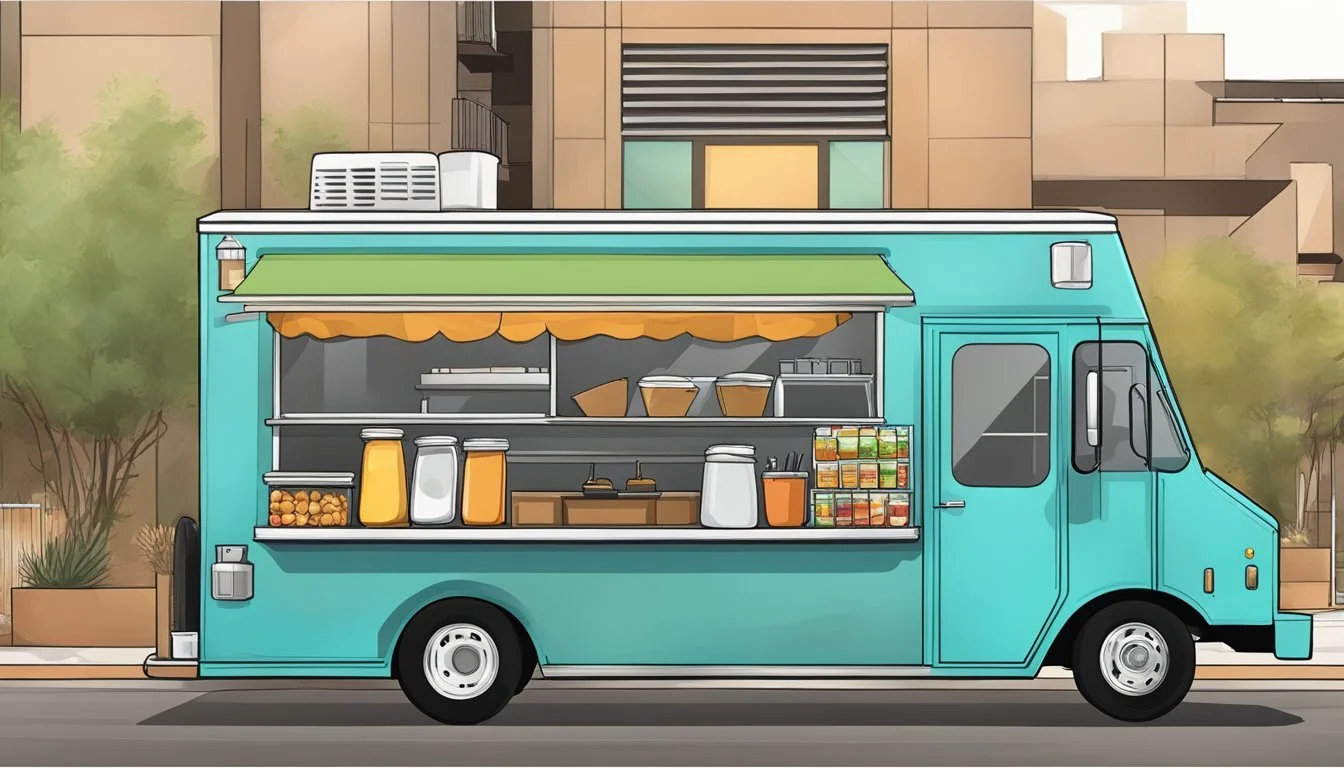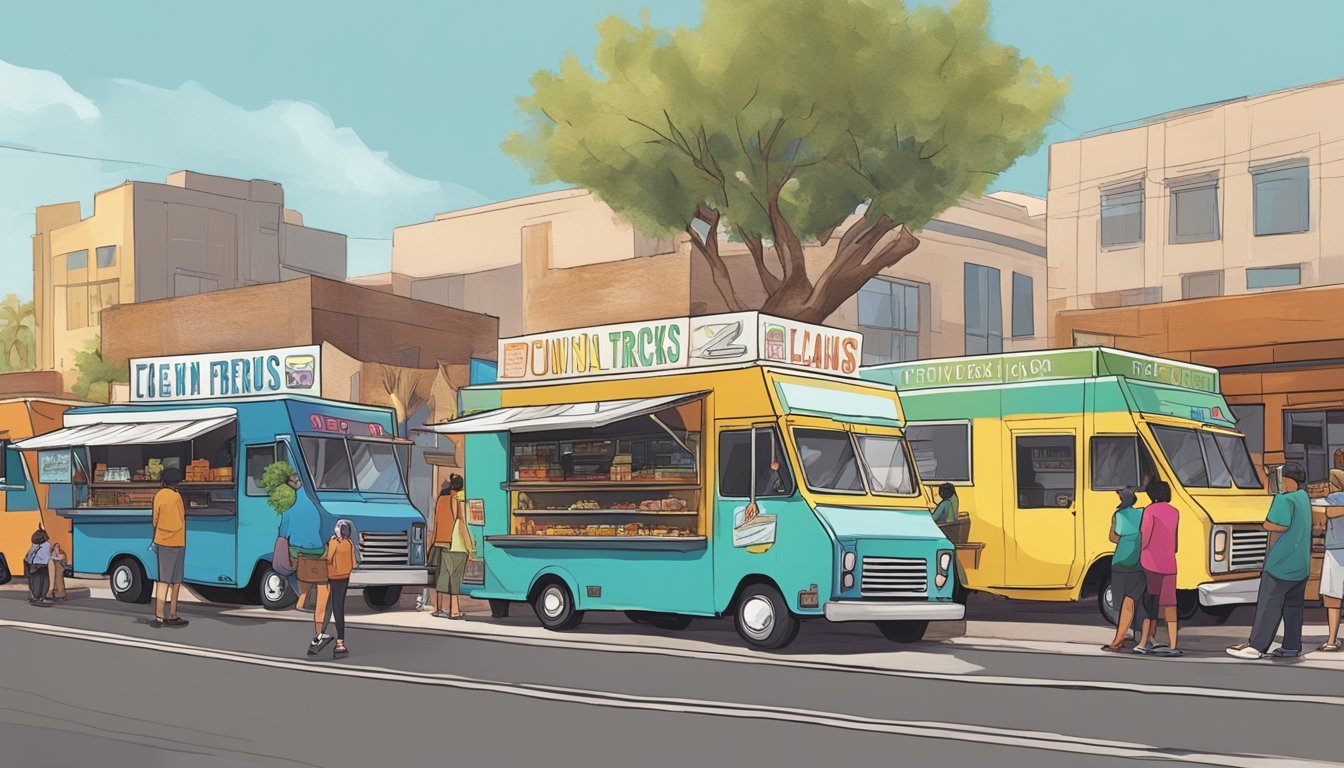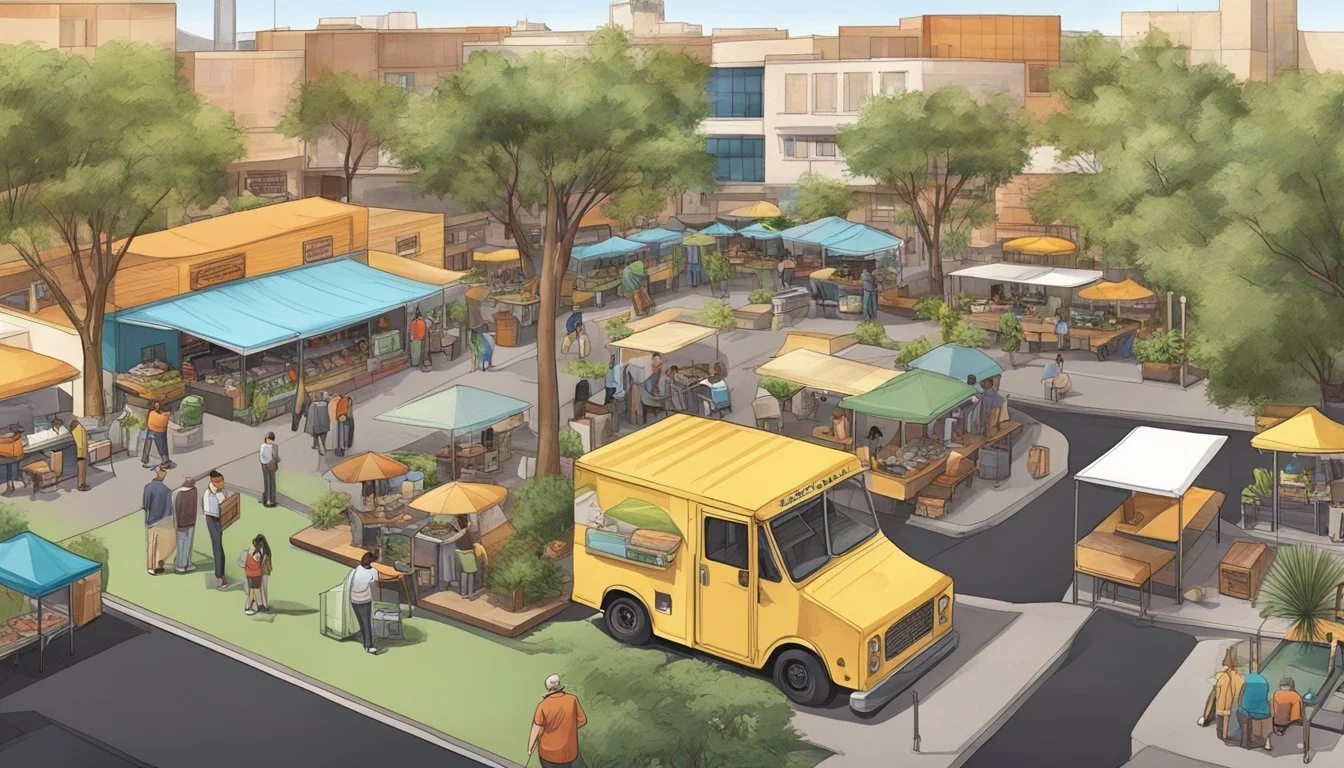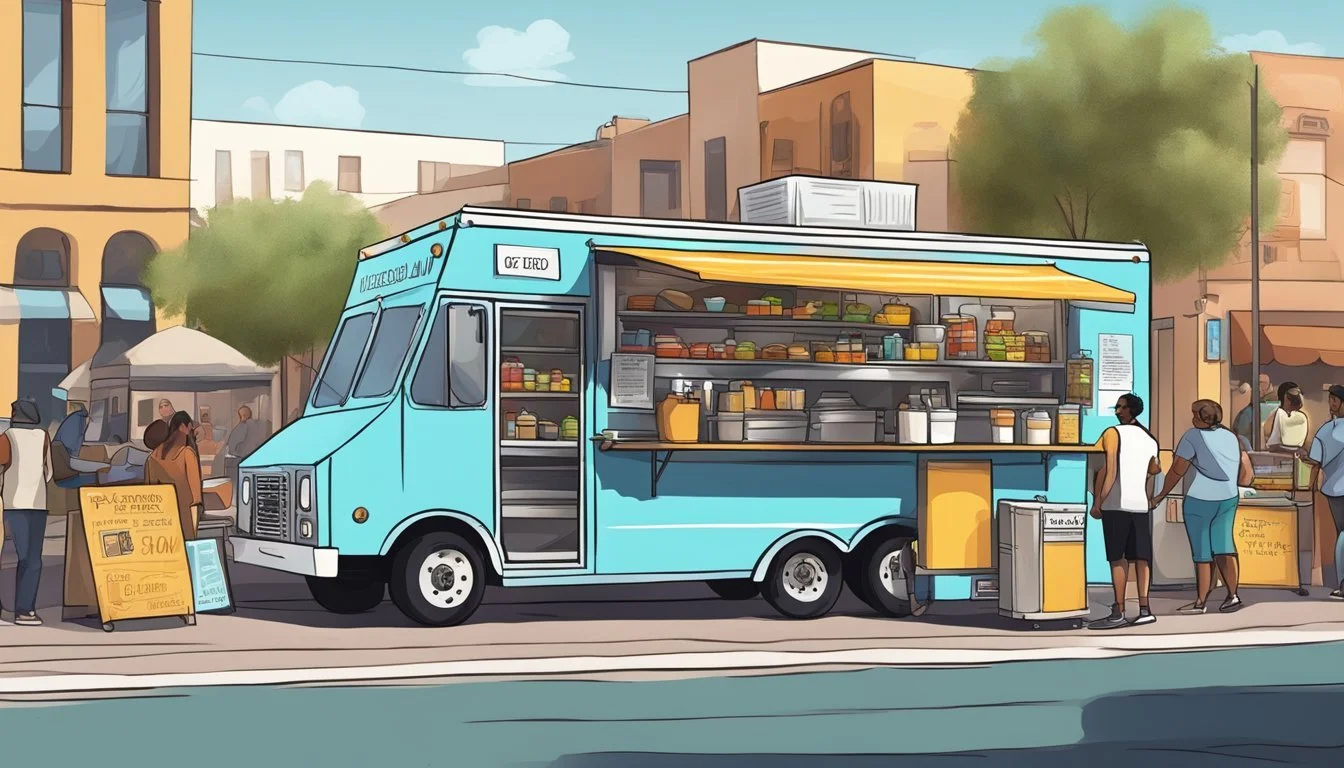Food Truck Laws Tempe, Arizona
Navigating Permits and Regulations
Navigating the regulations surrounding mobile food vendors is essential for those looking to operate a food truck in Tempe, Arizona. These laws are designed to ensure public safety, proper sanitation, and fair competition amongst local businesses. Food truck operators must adhere to various requirements, from obtaining the necessary licenses and permits to following specific zoning laws that dictate where and how they can operate.
In Tempe, as in much of Maricopa County, food trucks must comply with health and safety standards that include proper food handling and waste disposal. These standards are in place to protect consumers and guarantee the quality of the food being served. Additionally, mobile food units are subject to inspections to ensure they meet these stringent requirements.
The city's evolving landscape can lead to changes in regulations, catering to both the growth of the mobile food sector and the concerns of the community. The Tempe City Council has been involved in discussions to revise existing food truck laws, indicating a dynamic dialogue between food truck operators, customers, and city officials. Staying informed about current and upcoming regulations is critical for food truck owners operating in this vibrant and ever-changing environment.
Legal Framework for Food Trucks in Tempe
Tempe's food truck industry operates within a framework designed to promote public safety and fair business practices. Both state laws and local ordinances play a role in regulating this vibrant sector.
State and Local Ordinances
Arizona has streamlined the process for food truck operators at the state level, implementing a law that requires a single state license. This law simplifies the need for multiple licenses that was previously required – a welcome change that reduces the bureaucratic burden on food truck owners. However, food trucks must still adhere to local Tempe ordinances that encompass legal parking spaces for operations and conform to public safety standards.
Food Truck Operator Requirements
To operate a food truck in Tempe, one must secure the necessary permits and licenses mandated by both state and local regulations. It is essential for food truck owners to obtain a Mobile Merchant License through the City of Tempe, which governs the sale of tangible personal property, including food and drink. Compliance with food safety ordinances, OSHA regulations, proper waste disposal regulations, and tax laws are also required. These regulations ensure that food trucks meet the health and safety expectations set forth by state law and local ordinances.
Starting Your Food Truck Business
When embarking on the journey to start a food truck business in Tempe, Arizona, entrepreneurs must navigate through a series of decisive steps involving business registration, licensing, and adherence to health regulations. This section is designed to guide them through these critical initial processes.
Business Registration and Licensing
The first step for an entrepreneur is to apply for a Business License. This license serves as a legitimacy passport within the city of Tempe and can be applied for through the City of Tempe's official website. Additionally, one needs to obtain an Employer Identification Number (EIN) from the IRS for tax purposes. The process may involve a fee and requires annual renewal to keep the business operational.
Food Truck Permits and Health Regulations
Operating a food truck also necessitates obtaining specific food establishment permits that ensure the mobile kitchen abides by health and safety codes. In Arizona, a state license is required for food trucks which simplifies the process compared to navigating county and city requirements separately. Entrepreneurs must meet the Arizona health department's standards, and may apply for a food truck permit at the state level. Compliance with food safety regulations is critical and subject to inspection, aiming to protect public health and ensure quality service.
Location and Parking Regulations
Food truck operators in Tempe, Arizona, must carefully navigate the specific regulations related to where they can park and operate. Tempe City Council has established rules to balance the vibrancy of mobile cuisines with public safety and urban order.
Public Streets and Property
Food trucks operating on public streets and property in Tempe are subject to stringent guidelines to ensure they do not disrupt traffic flow or pedestrian access. Parking is typically allowed in designated areas, and many zones may be governed by metered parking regulations. It is essential for operators to verify whether they are in compliance with local parking restrictions. Furthermore, food trucks are prohibited from conducting business in public parks without proper authorization, often requiring a permit that must be acquired in advance.
Private Property and Special Events
When it comes to private property, food truck owners must obtain permission from the property owner to operate on the premises. This is often a common practice during special events where food trucks can add to the event's offerings. Operators must ensure that their location does not impede emergency services or violate any Tempe City Council regulations specific to private land use. Compliance with all relevant zoning and business licensing requirements is mandatory irrespective of the duration of the event or standard business operation on private property.
Operational Guidelines for Food Trucks
Regulations in Tempe, Arizona are designed to ensure food trucks operate smoothly while upholding public safety and health standards. Compliance is mandatory for mobile food vendors.
Safety and Sanitation
Mobile food vendors are required to adhere to strict sanitation practices to preserve public health. Vehicles used for food service must undergo regular inspections to verify that food preparation, handling, and storage areas meet or surpass cleanliness benchmarks set by Maricopa County. This includes maintaining the required hot and cold holding temperatures for food, which helps prevent foodborne illnesses.
Tempe regulations also mandate that each food truck must be equipped with a handwashing sink with hot and cold running water, soap, and towels, ensuring that employees can maintain proper hygiene.
Insurance and Liability
An active insurance policy is non-negotiable for food truck operators. These policies protect both the vendors and the public in the event of accidents or injuries. In Tempe, a comprehensive insurance policy should cover vehicle-related incidents and product liability to safeguard operations.
Additionally, mobile food vendors must carry liability insurance with adequate coverage. This financial safety net is a legal requirement that protects both the business and its customers in case of property damage, accidents, or other liabilities directly associated with the operations of the food truck.
Economic Aspects of Running a Food Truck
In Tempe, Arizona, running a food truck involves navigating local market dynamics and understanding the specific cost structure. Economic success hinges on the owner's ability to adapt to these factors.
Understanding Local Market Trends
Tempe's demographic and cultural backdrop is a key determinant in the success of food trucks. With a population that includes a considerable number of college students, the demand for quick, affordable, and diverse food options is high. Tracking local market trends ensures that menus align with consumer preferences, which influences revenue. Vendors need to stay informed about local events and student patterns, as these often provide lucrative opportunities for increased sales.
Revenue and Fee Structures
The revenue for a food truck in Tempe is influenced by several factors such as location, menu pricing, and operational efficiency. To operate legally, proprietors must comply with the regulatory landscape, which includes obtaining necessary licenses and permits specific to Maricopa County and Tempe's jurisdiction. The cost of these fees can impact overall profitability. Revenue is also affected by the required food safety and regulatory compliance, which govern operational aspects like waste disposal and tax laws. In Arizona, food truck owners benefit from streamlined requirements, yet they must still budget for state license fees and consider the costs of additional city permits when expanding their services outside of Tempe.
Community and Environmental Impact
The regulatory landscape in Tempe, Arizona, strives to maintain a balance between supporting entrepreneurial endeavors, like food trucks, and ensuring the comfort and well-being of the community and its environment.
Noise Regulations
In Tempe, noise regulations are crucial for minimizing disruption caused by mobile food vendors. They must follow specific guidelines that dictate decibel levels and operation hours. This ensures that the peace of the residential areas is maintained, while also allowing for the vibrant culture of street food to thrive without significant disturbances.
Good Neighbor Policy
Tempe's Good Neighbor Policy emphasizes the importance of food truck operators respecting the communities in which they operate. This involves adhering to waste disposal regulations to prevent littering and contamination, for instance, and positioning their vehicles in a manner that does not impede traffic flow or pedestrian movement. Entrepreneurs are encouraged to foster positive relationships with established businesses and local residents by operating in a considerate and community-friendly manner.
Resources and Associations
For food truck owners in Tempe, Arizona, navigating legal requirements and leveraging support networks is crucial. Two pivotal supports include professional associations and city services that offer guidance and aid in compliance with local food truck laws.
Professional Associations for Food Truck Owners
The Phoenix Street Food Coalition is a key resource for food truck operators in the Tempe area. They advocate for mobile food vendors, providing a community where members can share best practices and stay informed about changes in laws and regulations. This coalition is invaluable for owners seeking solidarity in a dynamic industry.
City Services and Support
Tempe Public Library offers resources that are instrumental for those starting or managing a mobile food business. These services range from business plan development to legal aid. Furthermore, Tempe's city services stand ready to assist with obtaining the necessary permits for mobile food units and ensuring that they understand and comply with local ordinances tailored to Tempe, creating a supportive environment for these businesses to thrive within the city.









